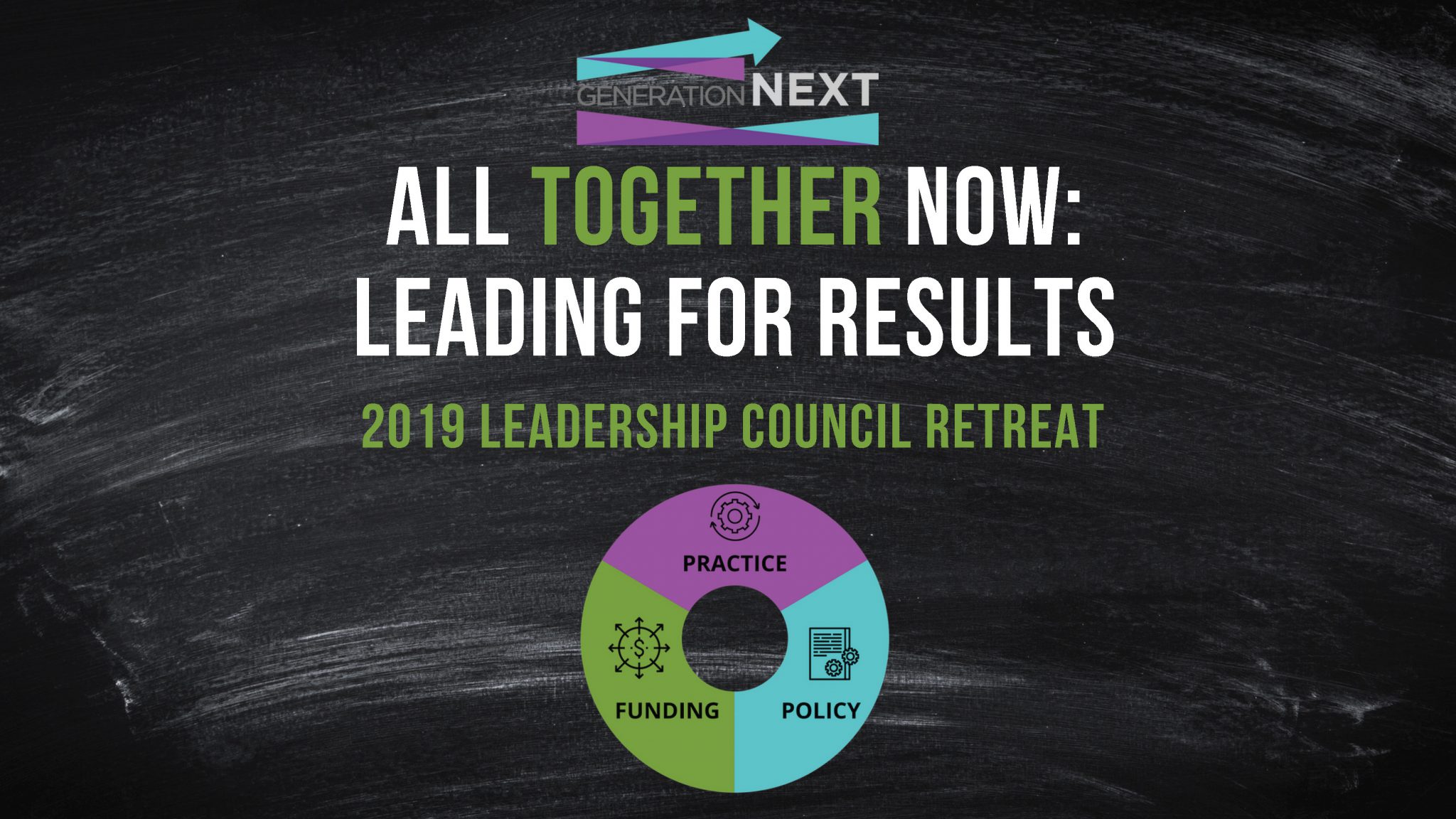
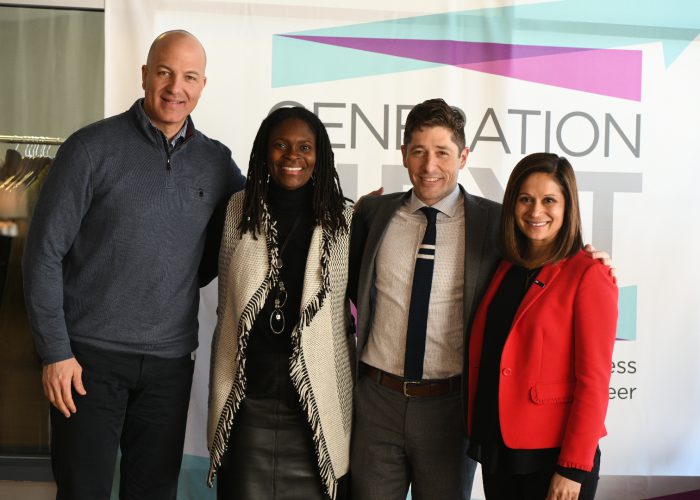
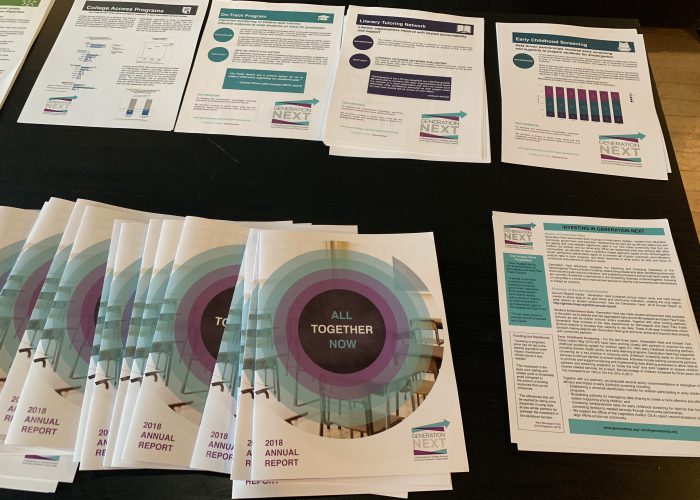
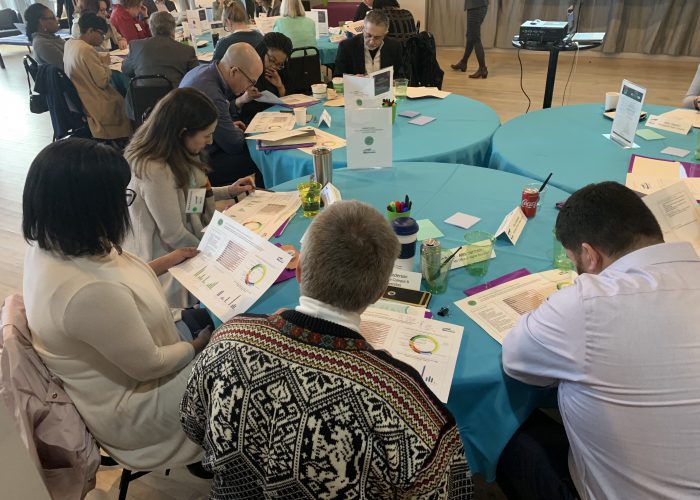
The Generation Next 2019 Leadership Council Retreat was held on March 22, 2019 at the Midpointe Event Center in Saint Paul. This year’s retreat had over 65 attendees, including Leadership Council members, Data Committee members, and special guests and speakers.
Retreat attendees spent the day reflecting on the objectives of the retreat:
- Connect with fellow Leadership Council members for the purposes of Coalition building
- Reflect on the larger collective impact context and current innovations to inform the Generation Next strategy
- Learn about Generation Next’s new priority areas in order to make personal action commitments
- Draft action plans for each priority area, which outline how each work group (practice, policy, funding) will support action
To kick off the day, attendees were asked to meet with three people outside of their normal Leadership Council work group, and ask them “What is your personal motivation for supporting Generation Next?”, “What is one strength you bring to the coalition-building process?” and “What is one guiding principle that you could better model as a leader of Generation Next?”
Michelle Walker, Executive Director of Generation Next, gave an update on what the work groups have been doing since the last Leadership Council Retreat, and an overview of where Generation Next is to date.
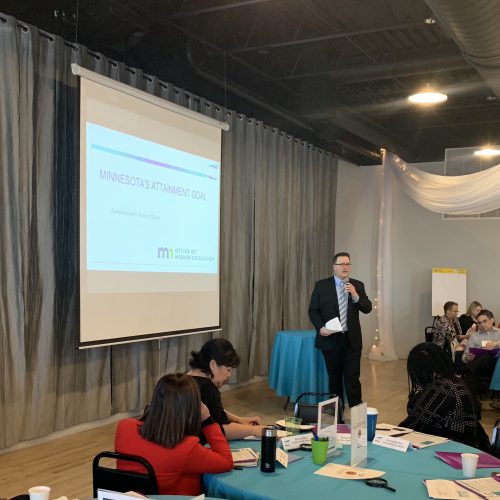
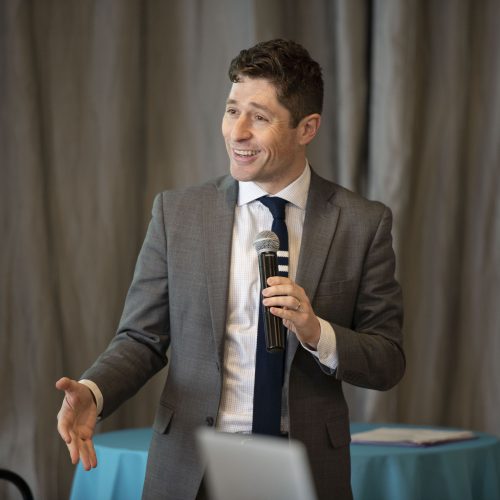
Commissioner Dennis Olson from the Minnesota Department of Education had a chance to speak to Leadership Council retreat attendees as he made the case for the state’s Education Attainment Goal 2025 with evidence and lived experience. The 2025 attainment goal is working to increase the percent of Minnesotans age 25 to 44 who have attained a post-secondary certificate or degree to 70% by 2025. To attain this goal for all racial and ethnic groups, Minnesota needs an estimated 143,900 additional individuals age 25 to 44 to complete their first educational credential (certificate or degree). By 2025, this number will grow as Minnesota’s population grows (assuming current rates of mortality, migration, and postsecondary completion).
For more information about the Minnesota Education Attainment Goal 2025, click HERE.
Minneapolis Mayor Jacob Frey was the keynote speaker for the retreat’s Lunch & Learn session. Mayor Frey shed light on the current homelessness problem affecting both adults and children in the Minneapolis / Saint Paul community. Frey spoke to contributing factors affecting the current homeless population in Minnesota, including racism in current housing policies, noting that it is three times more expensive for homeless members of the Twin Cities community to go through shelters, jails, or hospitals than it would be for them to provide public housing or other affordable housing options. Frey gave insight into his plan to address homelessness, especially focusing on homeless students in the Minneapolis public school system.
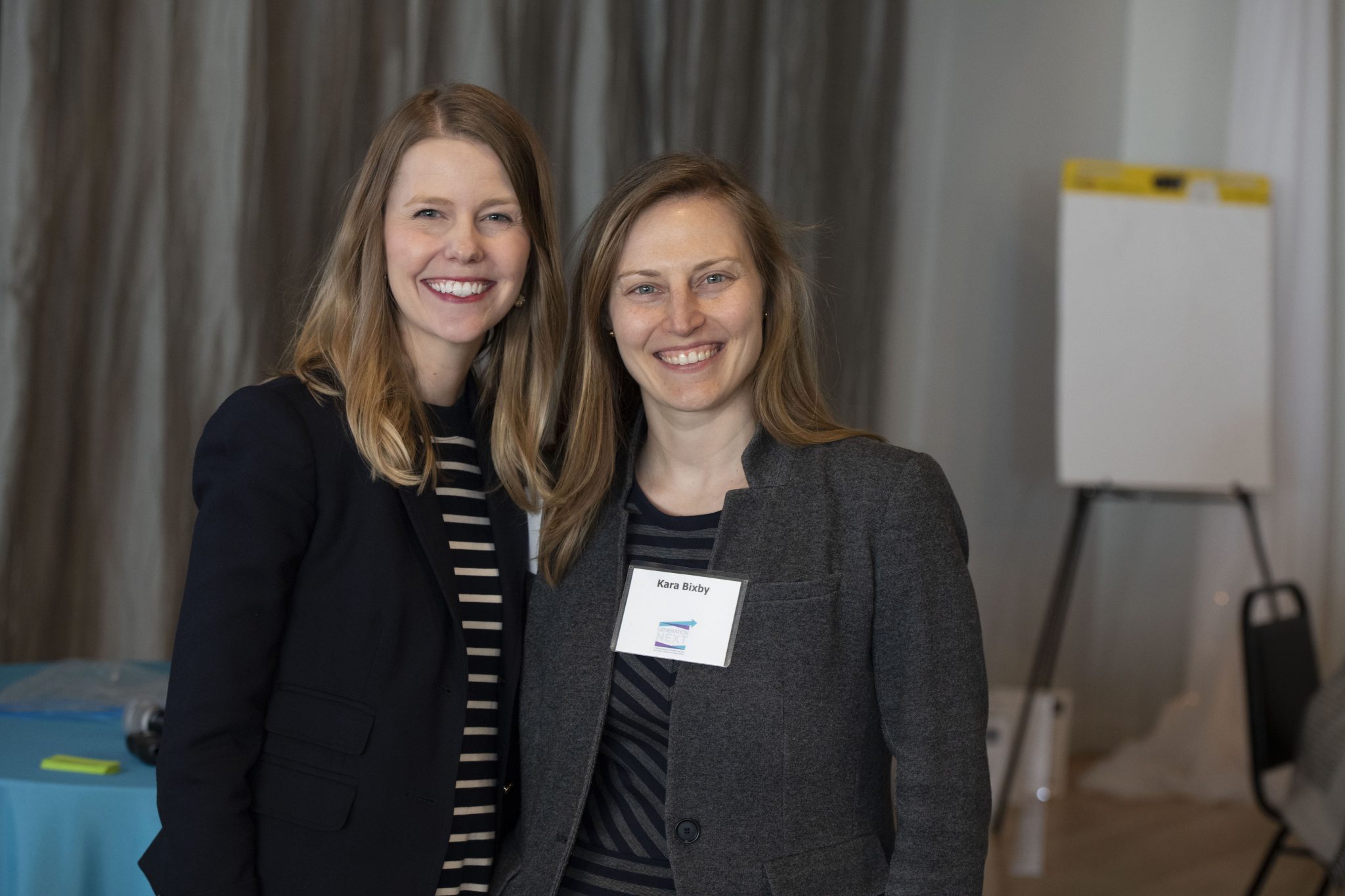
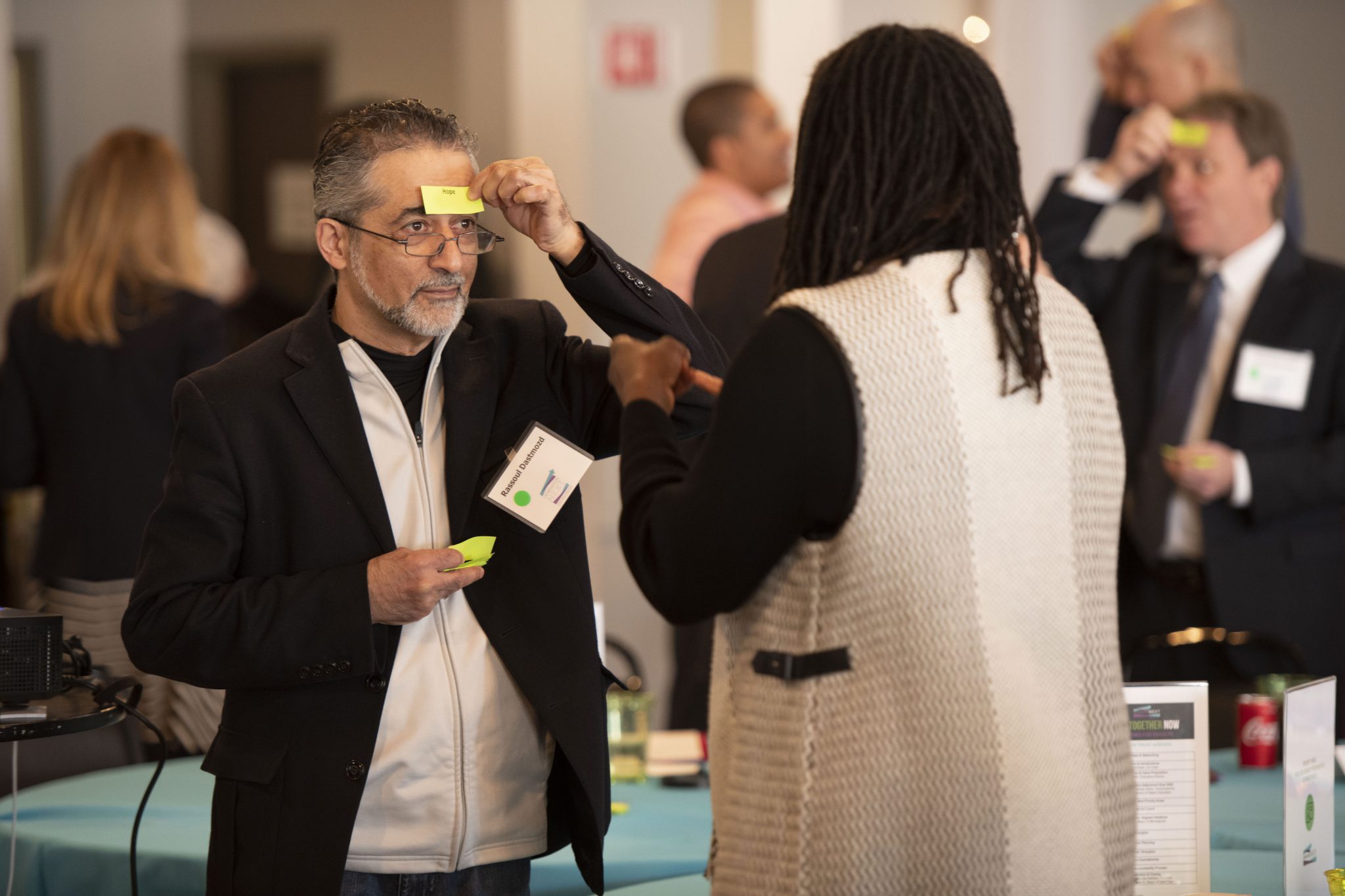
Nora Robinson and Kara Bixby from WithInsight were the retreat facilitators. Nora and Kara helped to keep the group on task, posed discussion questions, and also integrated fun and energizing activities to keep the participants engaged.
One of these activities was playing the “Head’s Up” game. Retreat attendees picked a partner and grabbed a stack of papers with words relating to collective impact written on them. One partner would put the paper on their forehead, and the other partner would try to give them clues about the word. This activity was definitely a hit with our retreat attendees!
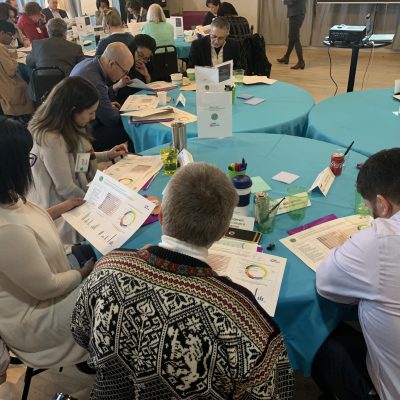
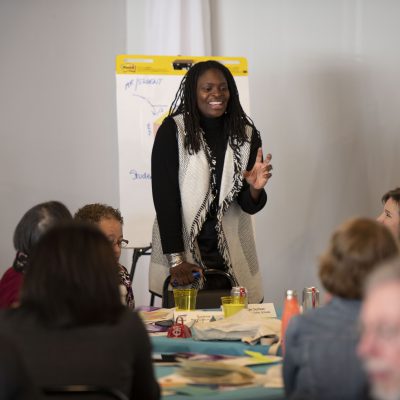
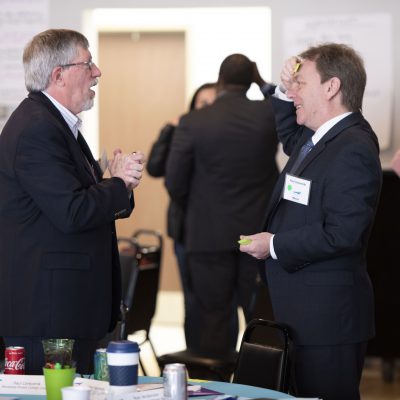
Throughout the retreat, attendees were engaged in table discussions related to Generation Next’s three new priority areas: Early Childhood Quality & Access, Teacher Diversity & Teaching Diverse Learners, and Post-Secondary Preparation & Persistence. There was also a special focus on transitions throughout all of the priorities. Attendees were given “data placemats” that corresponded to their priority area. These placemats included current and past data about the work being done in the priority area, and offered a space for table members to talk about where they saw gaps in the data, what more they would like to know, and where Generation Next can be best positioned to move the work ahead. Attendees also did a “Results at the Center” activity, which helped to map out the other organizations, systems, and policies in place that lead to or hinder progress in the priority area. The tables were also asked to set individual action commitments for the work they will be doing with Generation Next in the upcoming months and for the duration of 2019.

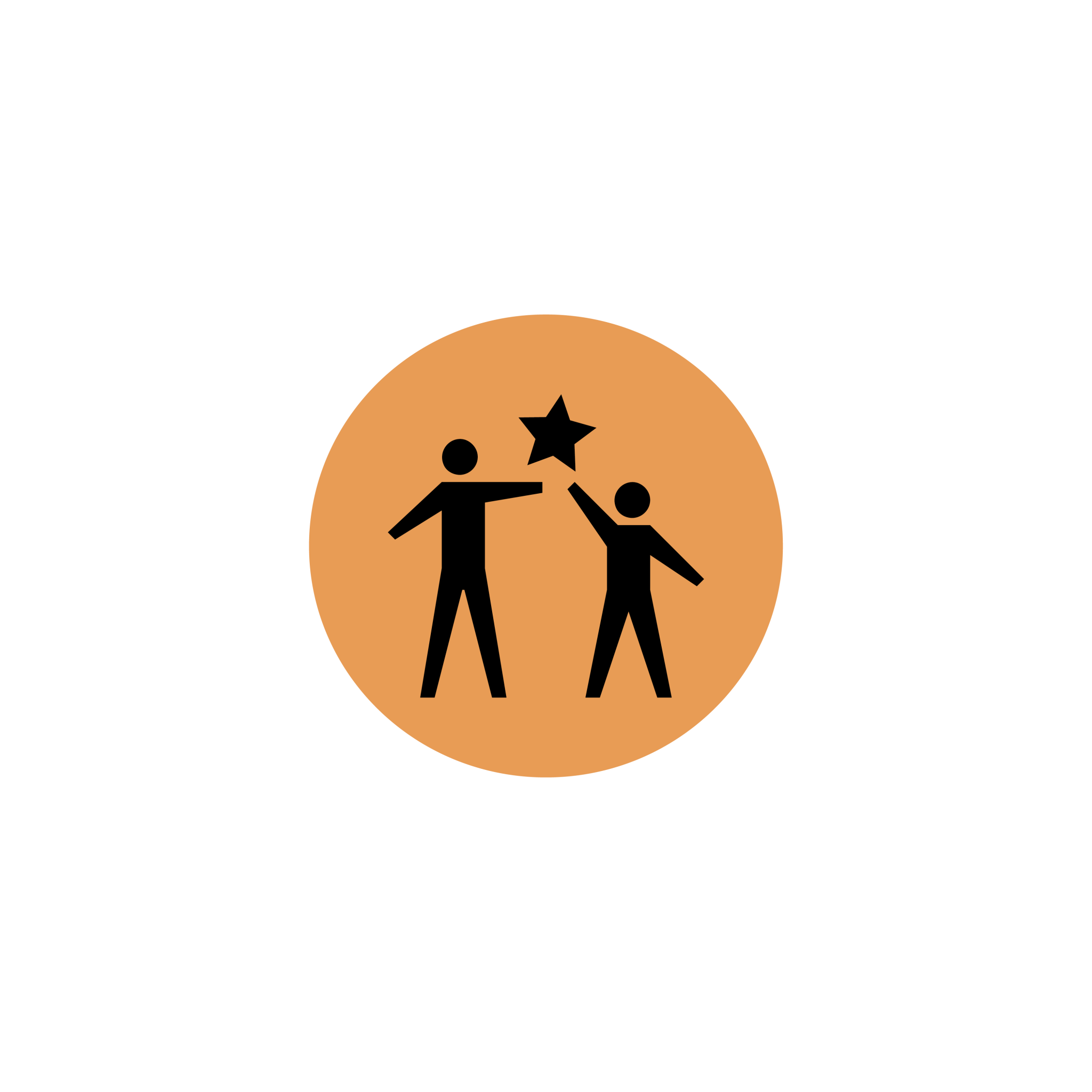

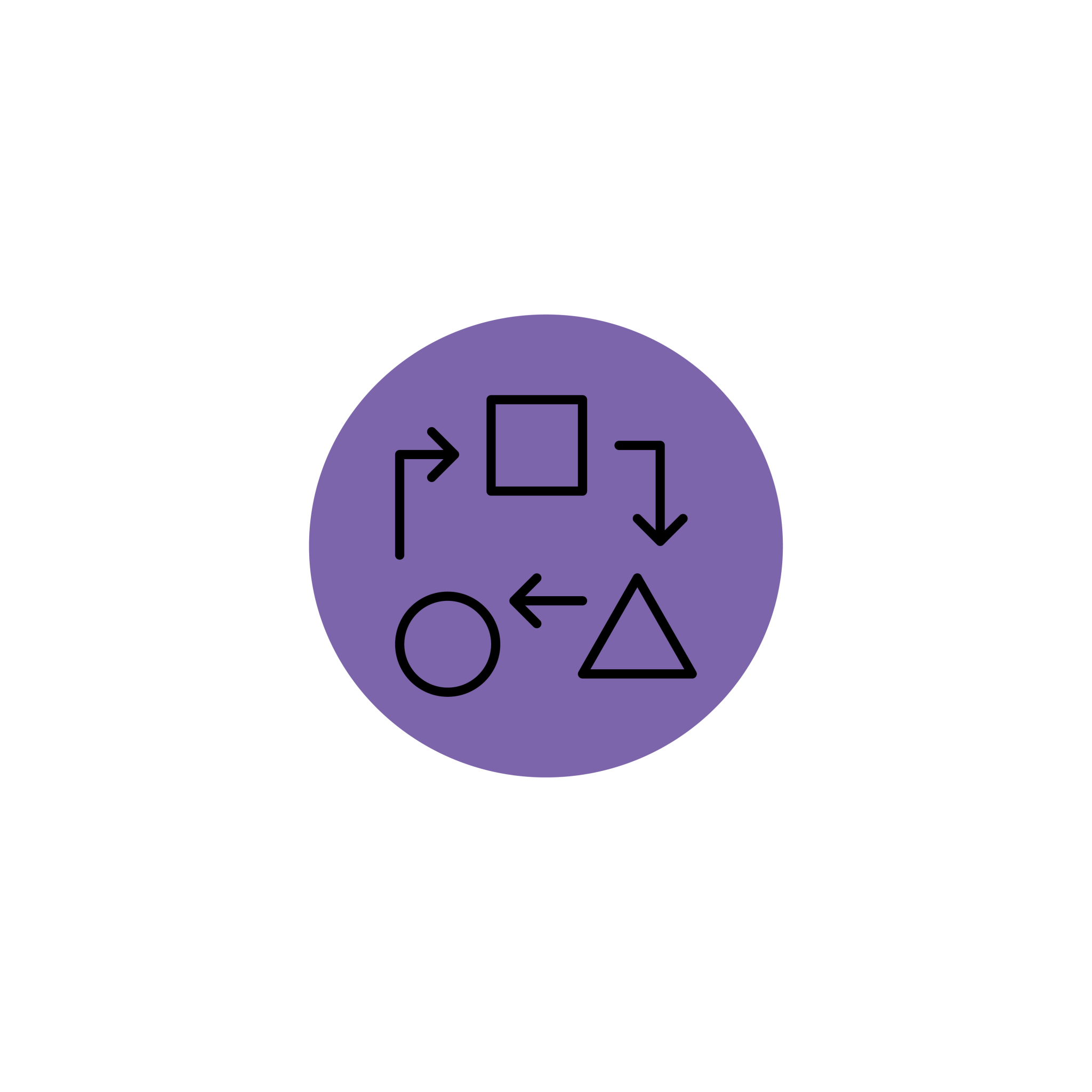
It's time for Action Commitments!
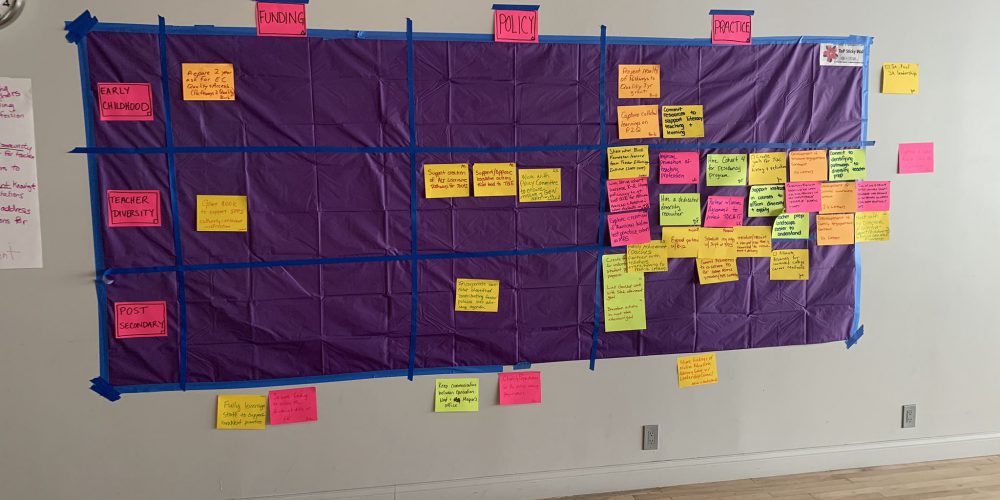
The last part of the 2019 Leadership Council Retreat was focused on attendees making their individual action commitments for their priority area and work group (practice, policy, or funding). These action commitments were then written on giant post-it notes and reviewed in the context of the priority areas (Early Childhood Quality & Access, Teacher Diversity & Teaching Diverse Learners, and Post-Secondary Preparation and Persistence) and work group (practice, policy, and funding) alignment. This wall allowed the entire group to see where the gaps in action existed, and where work was being done by others.
Generation Next collected all action commitments from attendees, and, in the future, will use these as a way to keep track of what the coalition is working on, and to gauge our progress with meeting results in our new priority areas.

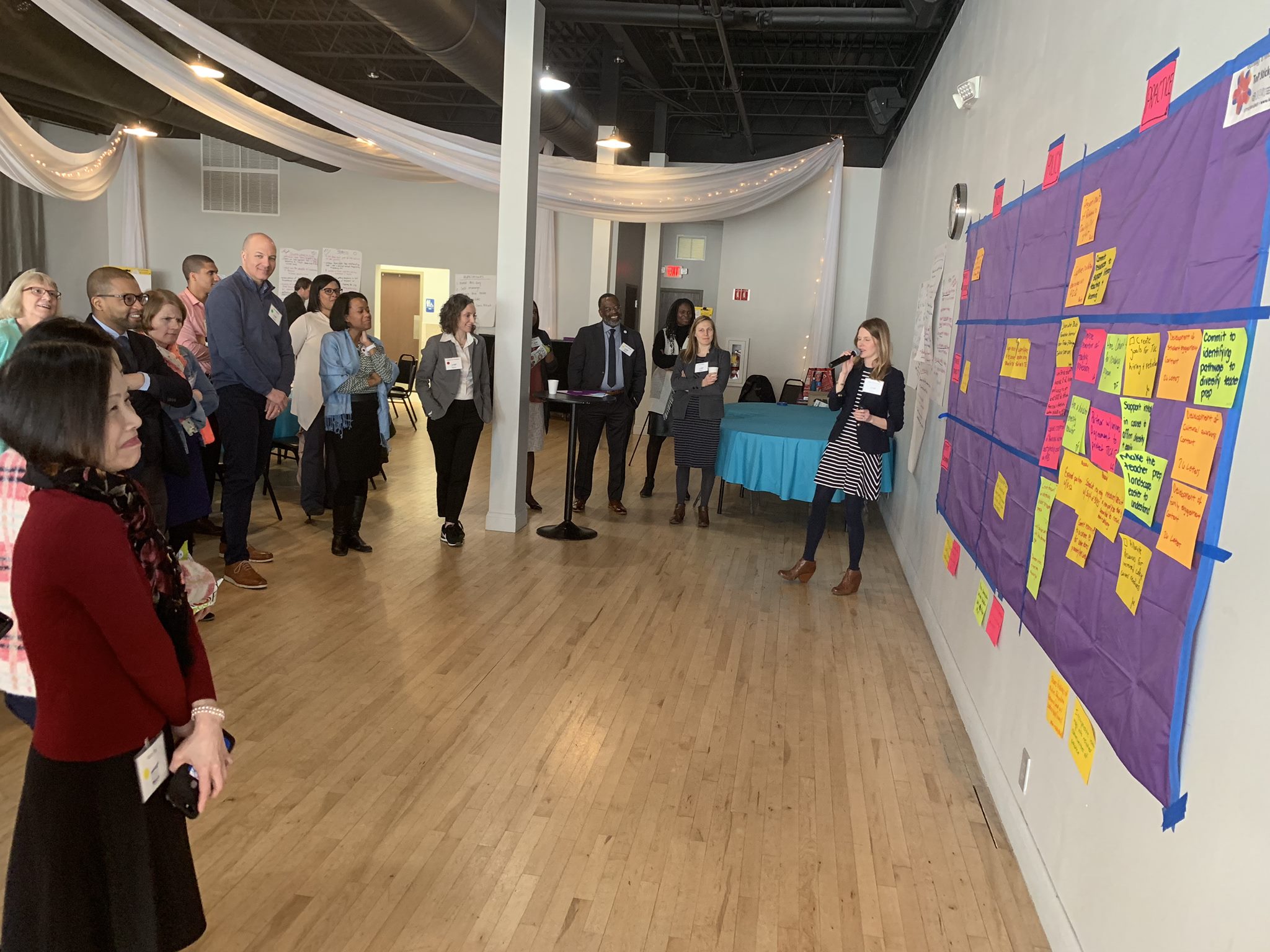
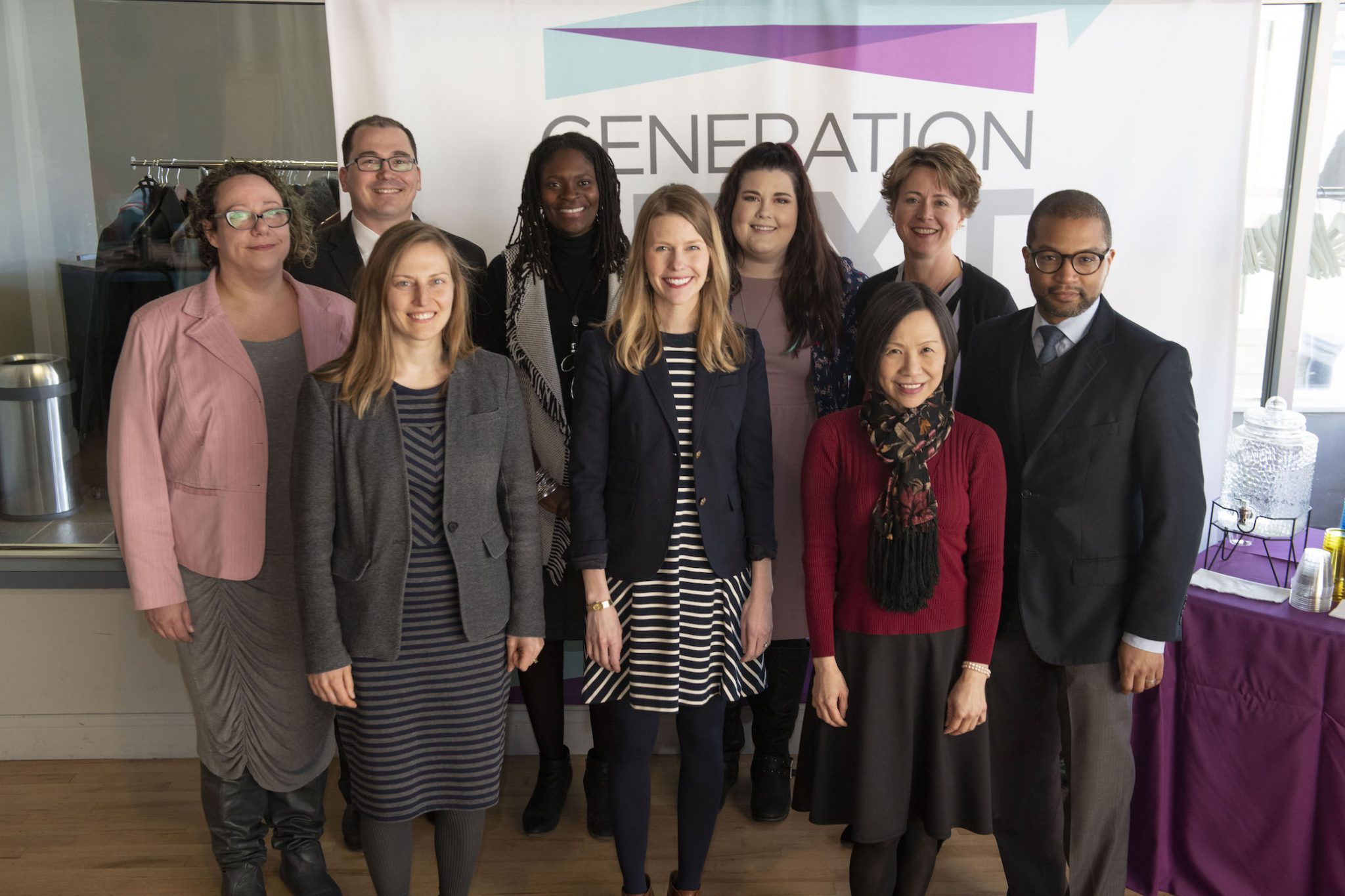
The Generation Next team would like to thank all of our 2019 Leadership Council Retreat attendees, guests, speakers, consultants, and all others who all worked together to make this retreat a resounding success! We look forward to the work to be done in our new priority areas with our coalition in 2019 and beyond!
